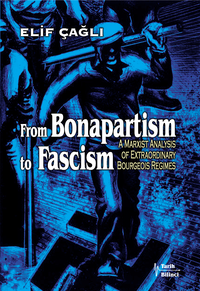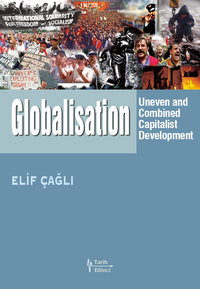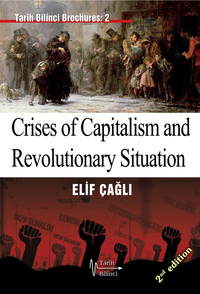In the preface he wrote in 1920 for his book Imperialism, Lenin explained that capitalism turned into a world system in which a handful of “advanced countries” were financially strangling and oppressing a great majority of world population. Imperialism is indeed a system in which powerful capitalist countries dictate various economic terms to weaker countries and oppress them by different means. Tendency of capitalism to grow into a world economy realised itself particularly in the era of the rule of finance capital that gained an international character.
Imperialism is the empire of finance capital. Finance capital is superior to all other forms of capital and therefore a handful of major capitalist states which are powerful in finance capital are in a superior position to all other capitalist countries. In the imperialist period superiority reveals itself in the dominant and monopolist position of powerful finance capital groups in markets. However, in the foreword he wrote to Buharin’s work Imperialism and World Economy, dated 1915, Lenin defines the new ruler of 20th century as follows:
Finance capital took over as the typical “lord” of the world; it is particularly mobile and flexible, particularly interknit at home and internationally, and particularly impersonal and divorced from the production proper; it lends itself to concentration with particular ease, and has been concentrated to an unusual degree already, so that literally a few hundred multimillionaires and millionaires control the destiny of the world.[1]
Being peculiarly mobile and flexible, this contemporary emperor carried on operating as peculiarly intertwined at home and internationally even after colonies and semi-colonies once under its rule gained their political independence. Different from the former modest industrial capitalists, major banking-industrial monopolies, controlling unbelievable amounts of finance capital assets did not need to focus their interest on particular factories or enterprises in the production process. In the final analysis, it is obvious that finance capital can only expand itself by investing on the production process and extracting surplus value in this process. But finance capitalists, controlling finance capital funds, laid the path for channelling huge amounts of profits to their coffers without taking place, even as supervisors, in production process any more. “Divorced from the immediate processes of production,” as Lenin said, emperors of finance capital focused on ways and methods of developing their global domination by transferring the work of organizing and supervision to well-paid professional managers.
To sum up; imperialism is the system of capitalist exploitation which is crowned by the domination of finance capital and is essentially embodied in the international expansionism of finance capital. The quality of imperialism has not been changed by the national liberation struggles that resulted in achievement of national independence in former colonial countries during the course of imperialist stage of capitalism. On the contrary, it indicates strikingly that what is crucial is the drive for economic hegemony in imperialist epoch. At present capitalism is a world system that is realized in a single world market embracing all capitalist countries no matter big or small, including also the countries which entered the road to capitalism with the collapse of Stalinist bureaucratic regimes. It develops in an uneven but combined manner on the basis of international division of labour and reproduces the interdependence on unequal terms.
[1] Lenin, “Preface to N. Bukharin’s Pamphlet, Imperialism and World Economy”, CW 22, p.105
link: Elif Çağlı, Imperialism is the domination of finance capital, August 2002, https://enternasyonalizm.org/node/591






